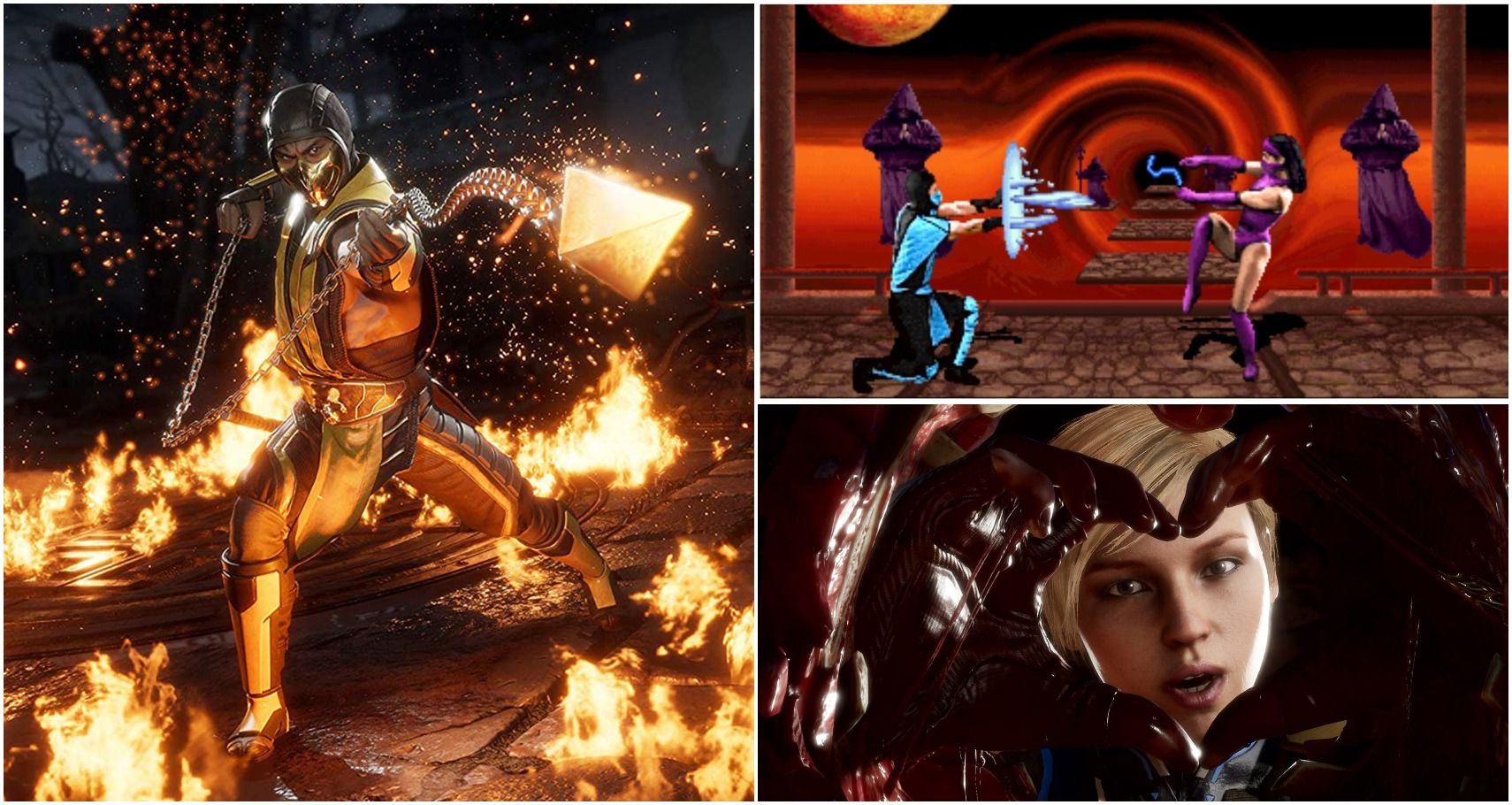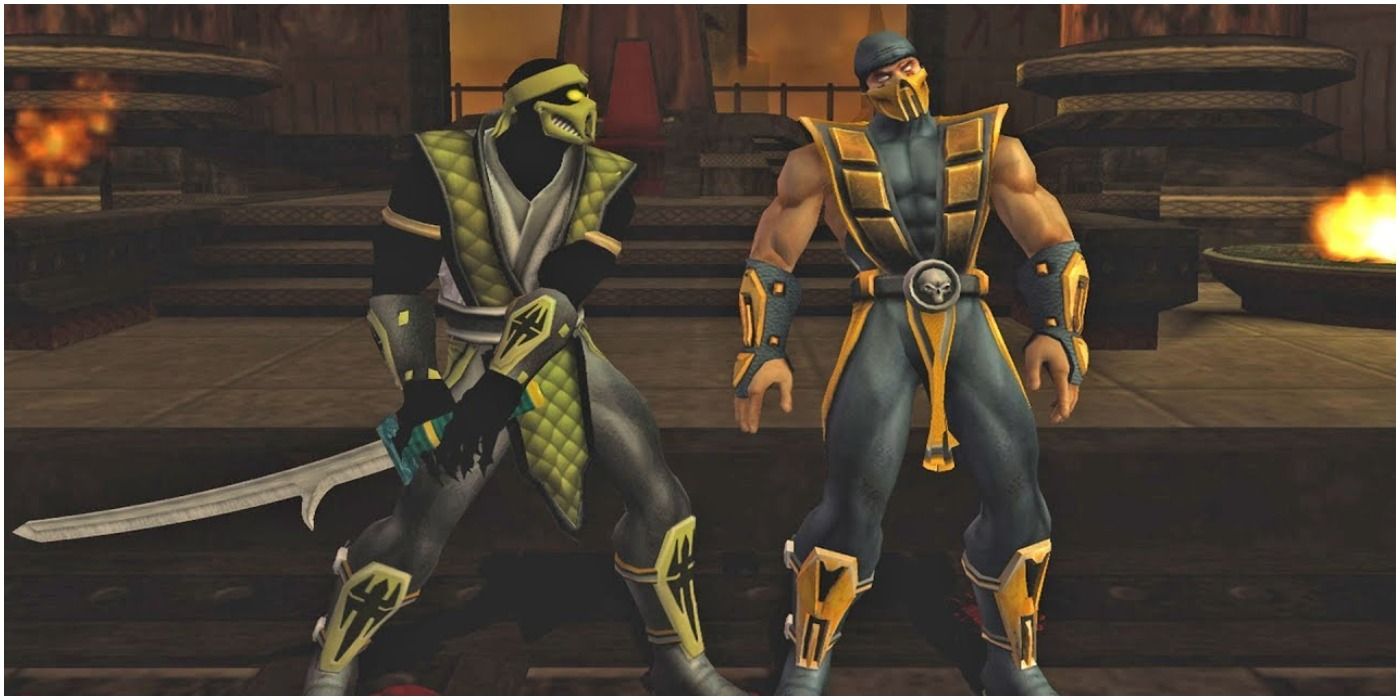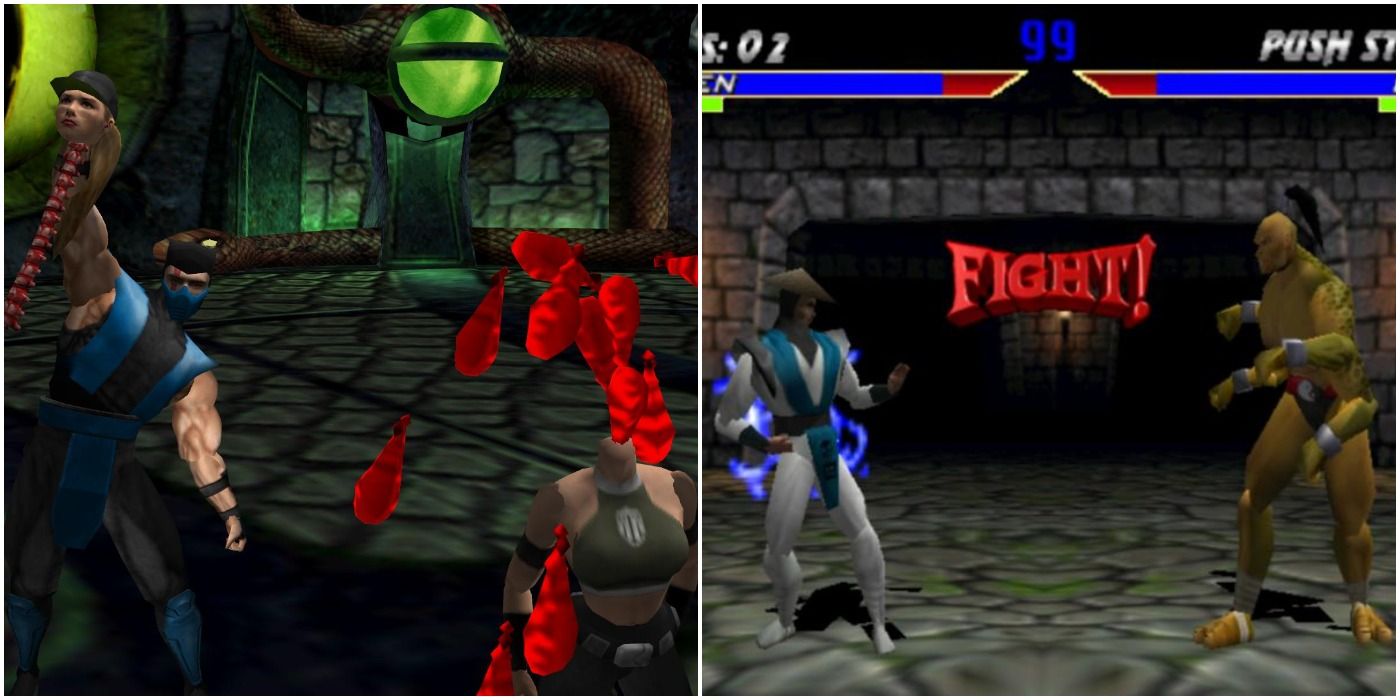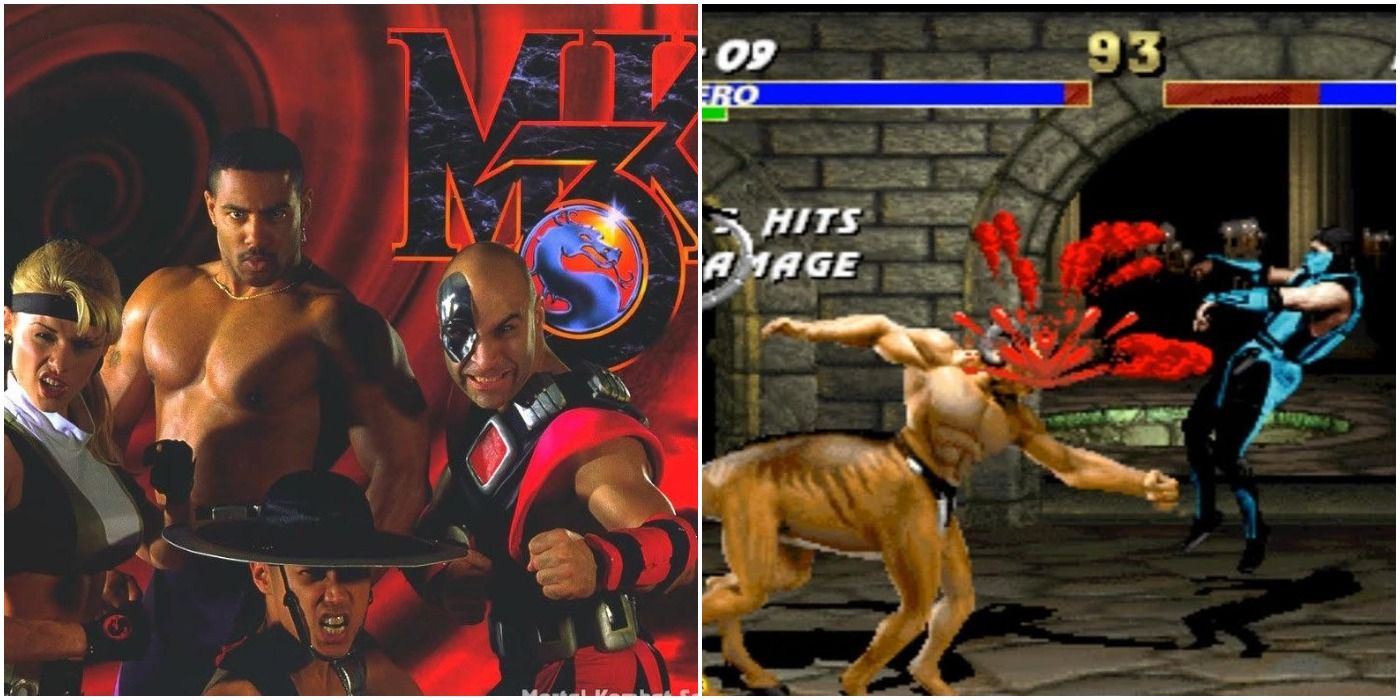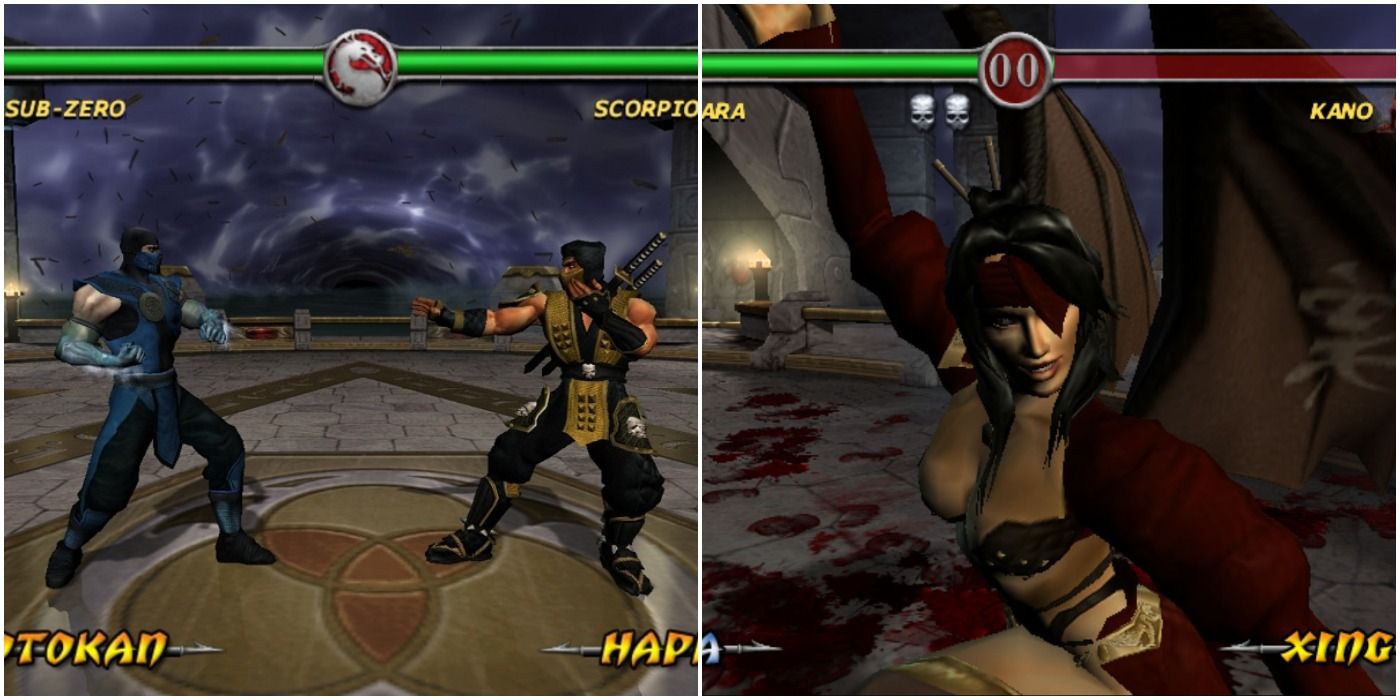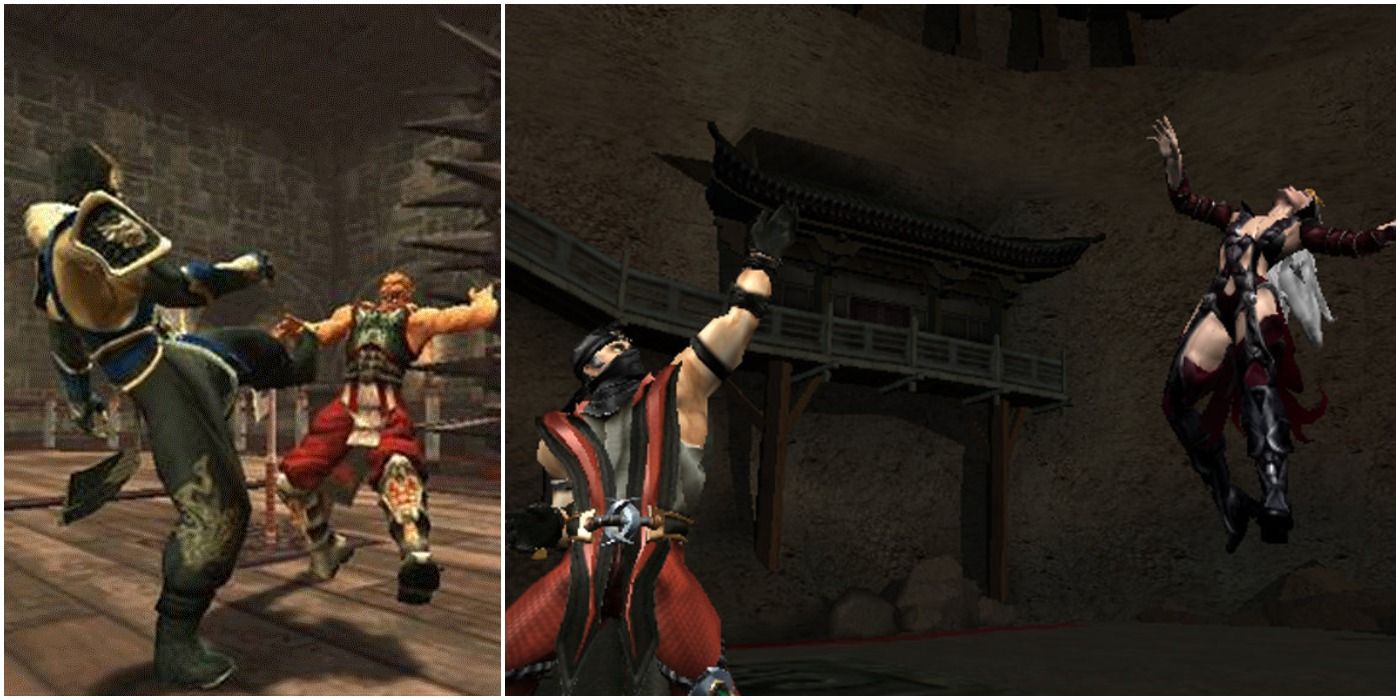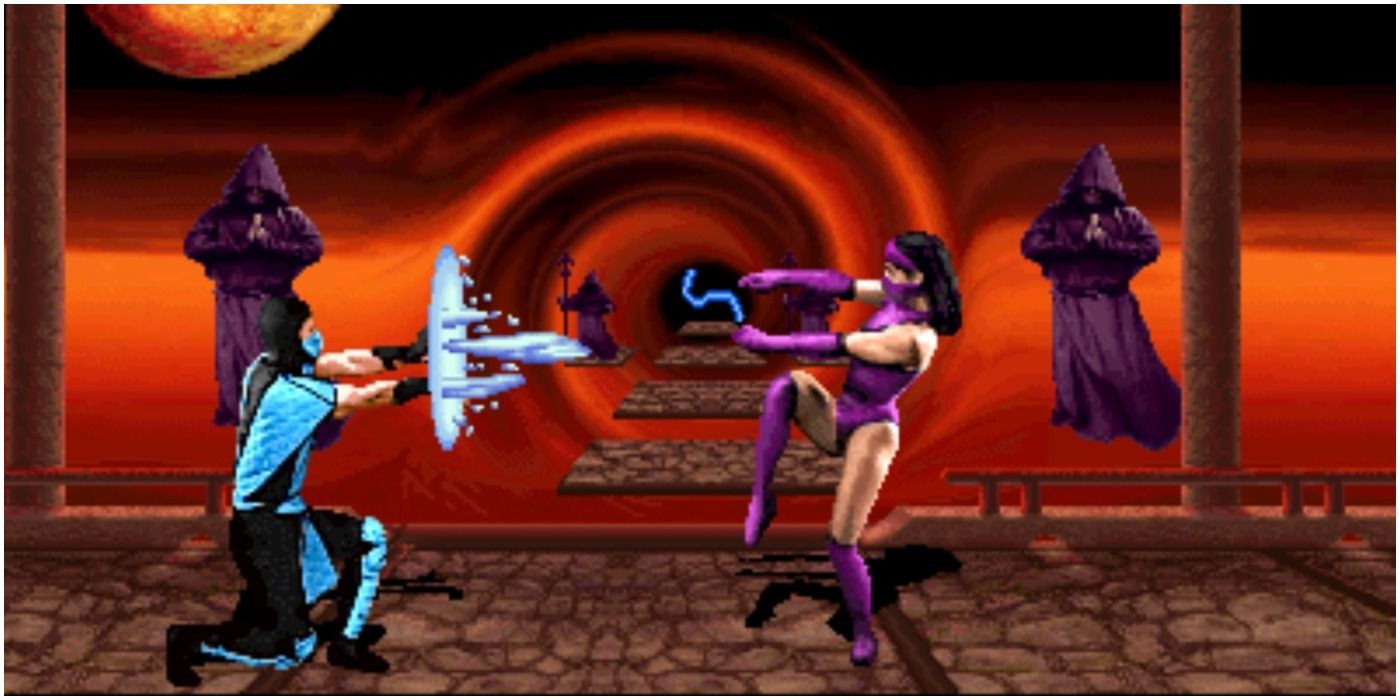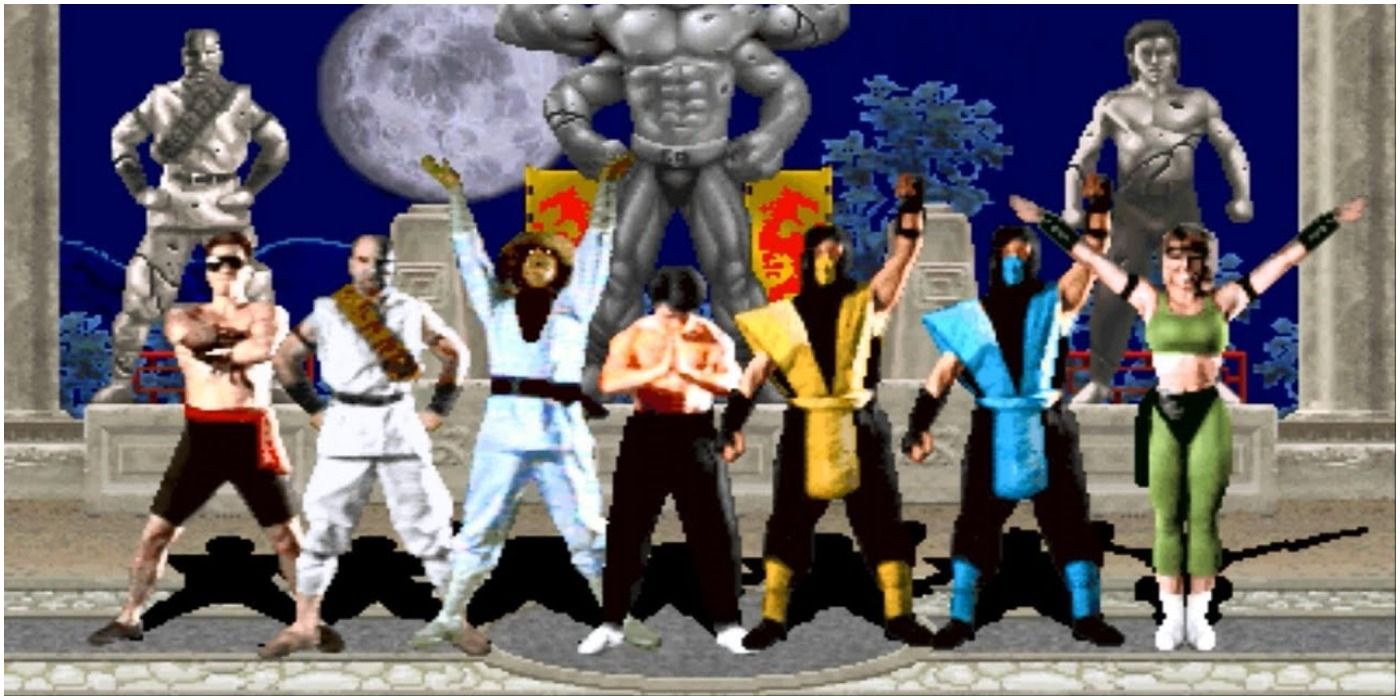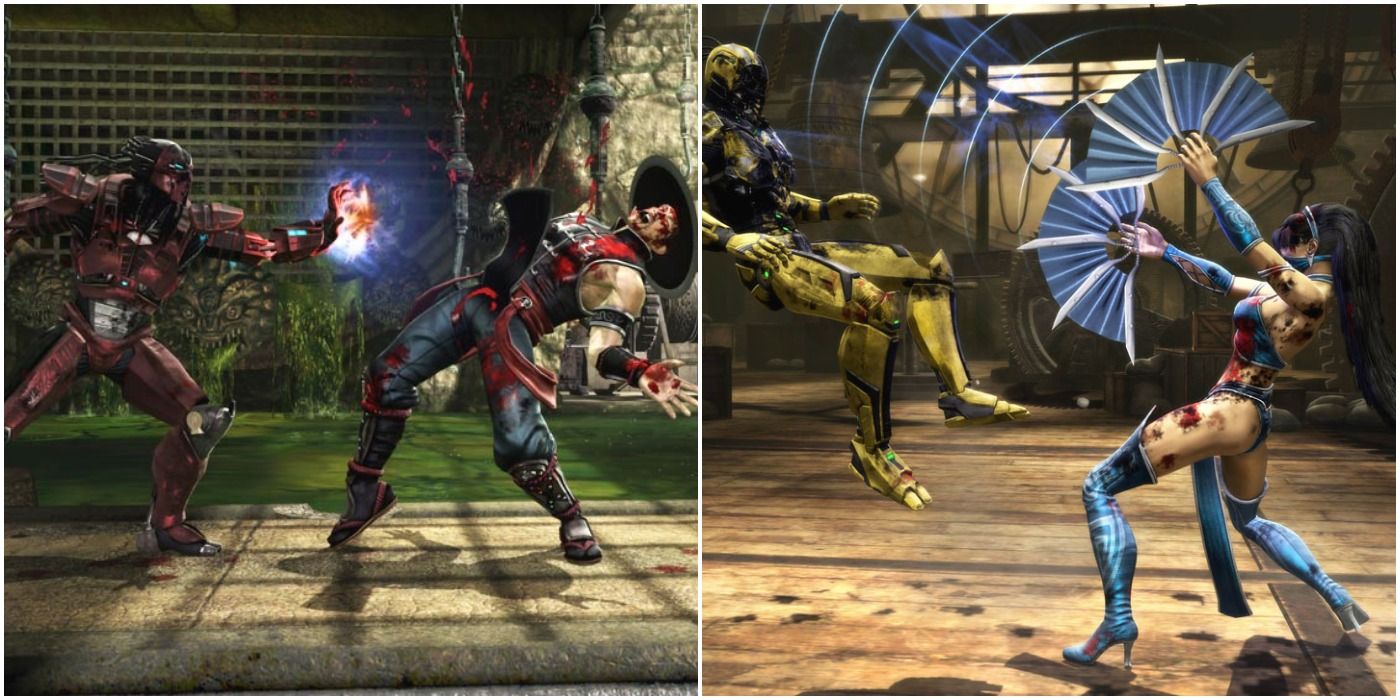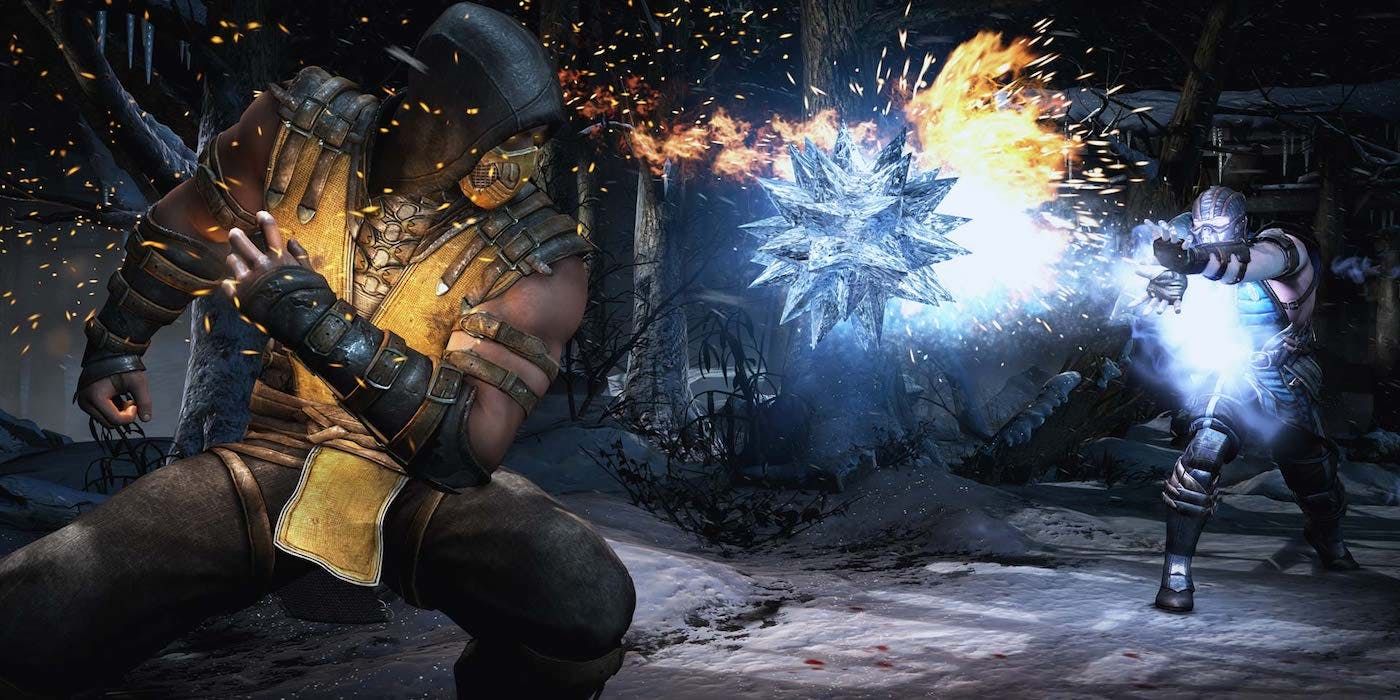It might be hard to believe that the Mortal Kombat franchise is hurtling towards its third decade in existence. But this definitive series of head-to-head fighting games has certainly packed away the years since its genesis as a humble, coin-operated arcade cabinet in 1992, and it has a lengthy and star-studded catalog of titles to show for it. But as most gamers are well aware, quantity doesn't necessarily equate to quality. Here's looking at you, Call of Duty.
So TheGamer poses itself with the inevitable question: which of Mortal Kombat's many chapters are the best of the best? Below is a ranking of every mainline Mortal Kombat game to have emerged over the course of its long and storied career. As a slight catch, TheGamer is only ranking the main entries in the series. So crossover titles, spin-offs, remakes and the like are barred from entry. Without further ado, let's begin!
10 Mortal Kombat: Armageddon (2007)
At a glance, Armageddon actually seems to have a lot to offer. After all, it came with a truly massive character roster, multiple fighting styles for most of those characters, and a seemingly unprecedented amount of freedom with its Kreate-a-Fighter feature.
Although the series had seen an upturn with its preceding two games, a multitude of Armageddon's new features and modes were underwhelming enough to tank its playability. The Kreate-a-Fighter and Kreate-a-Fatality customization systems were particularly bad, being misleadingly limited and detracting from the game's classic charm immensely.
9 Mortal Kombat 4 (1997)
While Mortal Kombat 4 certainly offered a few saving graces, it's also largely responsible for setting the stage when it came to some of the franchise's most disappointing entries and spin-offs.
The most divisive direction it nudged the series in was in terms of graphical presentation, which was likely to be expected, given that it was MK's first foray into three-dimensional graphics. Nonetheless, critics drew unfavorable comparisons to other 3D fighters of the time, and the new characters it brought to the table were entirely forgettable.
8 Mortal Kombat 3 (1995)
Mortal Kombat 3 (and Ultimate Mortal Kombat 3, by extension) is truly a mixed bag. On one hand, it's the culmination of and final entry in the series' truly classic roots. On the other, its lack of innovation failed to keep pace with other fighting franchises, and those additions that were made didn't go over very well, such as the run bar.
It also served as a prelude for arguably the series' lowest point, being followed by ill-conceived spin-off titles and some of the weakest entries in the main series to date.
7 Mortal Kombat: Deadly Alliance (2002)
Deadly Alliance was far from a perfect Mortal Kombat game, but it's also responsible for managing to drag the series out of the significant slump it had found itself in for the past several years. At the time of its release, it was the best-reviewed Mortal Kombat title since Mortal Kombat II.
The game's 3D graphics were a vast improvement over its predecessors' efforts, revamped its roster and fighting mechanics with a set of three different fighting styles for each character, and introduced the well-loved Konquest mode. Deadly Alliance also introduced a few of the series' more popular characters, namely the blind swordsman, Kenshi.
6 Mortal Kombat: Deception (2004)
Having successfully redeemed the series with Deadly Alliance, Midway, by and large, decided to stay the course when developing Deception to follow up. For most intents and purposes, it's a bigger and better version of Deadly Alliance.
The design and fighting mechanics largely echo its predecessor, but with some new toys such as the combo-breaker system and some incredibly radical environmental fatalities. The Konquest mode and the Krypt return to provide the player with some additional time-killing content, though the Puzzle Kombat mini-game was pretty forgettable.
5 Mortal Kombat II (1993)
Mortal Kombat II is widely hailed among the series' hardcore fans as the best entry in the entirety of the franchise, and with good reason. It's a straightforward and appropriate sequel in the sense that it's exactly what a sequel should be: A bigger and better version of its predecessor. Mortal Kombat II featured just enough innovation to keep the original formula fresh, but intact.
The general fighting mechanics were tightened and improved, characters now had access to additional special moves and fatalities, and the game introduced cornerstone playable characters like Jade, Jax, and Baraka. However, as with most retro titles, the game hasn't exactly aged well and thus struggles to hold the attention of modern audiences.
4 Mortal Kombat (1992)
This is it. The original, the genesis, the controversially gory fighting game that is partially responsible for the very existence of the ESRB rating system. None of the other games on this list would exist without this one, which helps its ranking immensely.
Of course, the obvious issues do need to be mentioned in the interest of fairness. There's little variation between fighters - in fact, there really isn't anything setting their fighting styles apart besides their associated special moves, meaning players are likely to see all that the game has to offer in one sitting.
3 Mortal Kombat (2011)
"Reboot" can be a scary word when it comes to an established and well-loved franchise. Thankfully, it's the precise opposite when it comes to Mortal Kombat. Sometimes referred to as Mortal Kombat 9, this 2011 rebirth released to immense critical acclaim.
Perhaps most importantly, Mortal Kombat 9 introduced the super meter to the series for its now-iconic X-ray moves, essentially extended and uninterruptible combo attacks rendered in a brutally cinematic fashion that could change the entire course of a fight.
2 Mortal Kombat 11 (2019)
Mortal Kombat 11 is the most recent title to date, and it finely upholds the high standard that the series has been achieving since its 2011 reboot. Particular high notes include its wonderfully in-depth tutorial, managing to frame complex fighting mechanics in an easy-to-learn sequence of lessons, and the currently unfurling roster of awesome DLC characters.
Apart from that, it does a lot of the things that Mortal Kombat X did right. However, it did receive some criticism for its customization and progression mechanics, locking them behind a ridiculously brutal series of grindy unlockables.
1 Mortal Kombat X (2015)
In terms of taking the series forward by leaps and bounds, few titles in Mortal Kombat's venerable roster can compare to Mortal Kombat X. Graphically gorgeous and as satisfyingly bloody as it needed to be, this entry is easily one of the series' most solid contenders.
While its delightfully cheesy story mode and rock-solid selection of game modes are definite credits, it really ramps things up with the character roster. Featuring old favorites alongside a fantastic set of newcomers such as Erron Black and Kotal Kahn, making for an impressive and varied original lineup of fighters to choose from.

